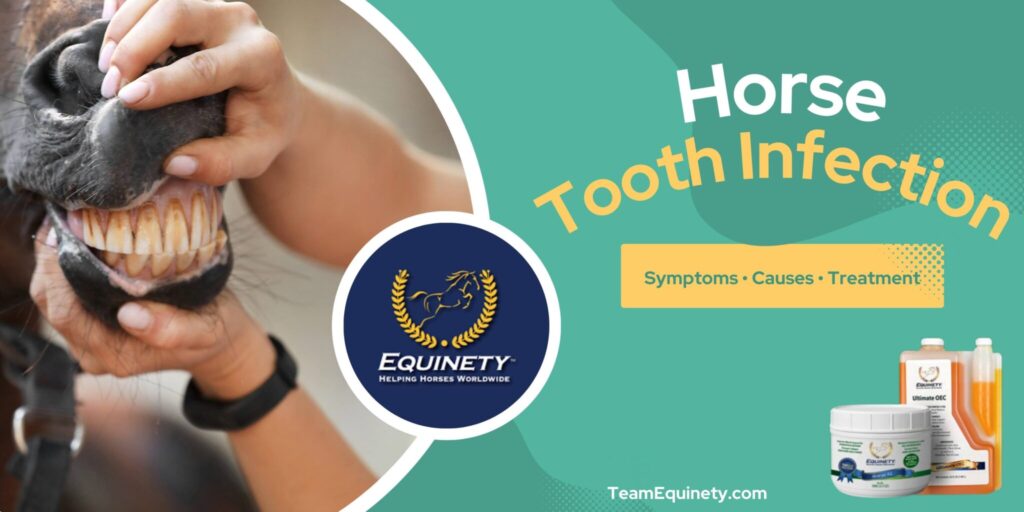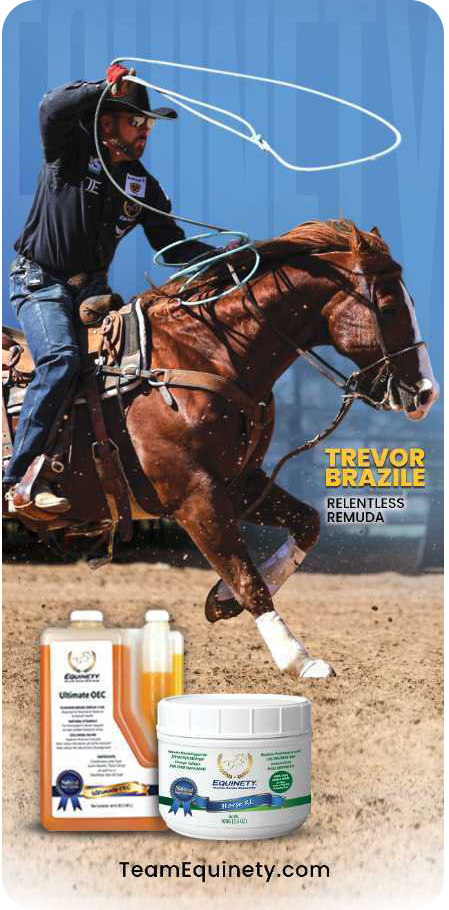Horses are herbivores as they eat plants. They need to have strong teeth; otherwise, they will not be able to eat correctly, affecting their overall health. Equine dental infections can be painful as these infections primarily infect the teeth and mouth of horses. If these infections are left untreated, then they can cause serious health issues.
For early intervention, it is essential to understand the signs of horse tooth infections. So here, you will learn about common indicators of such disorders.
- Dental Pain:
A horse facing any kind of teeth infection will experience pain while eating, especially when biting or chewing. If your equine is eating slowly or dropping partially nibbled food, then it is an indicator of discomfort caused by dental pain.
- Weight Loss:
Dental pain caused by tooth infections will lead to less food intake and weight loss over time, so if your horse is facing unexplained weight loss, you must check for tooth issues.
- Head Tilting:
Horses start tilting their heads or shaking them to alleviate the pain in teeth caused by infection. Head shaking or tilting can also be due to different reasons, but if you are also feeling symptoms of difficulty in eating or chewing, then it can be due to a tooth infection.
- Fever:
Dental infections lead to discomfort in horses, and their bodies struggle against the pain. Most of the horses who are suffering from tooth infections also experience fever.
- Excessive Salivation:
Excessive salivation or drooling, accompanied mainly by lousy breath, is another sign of discomfort in the mouth that may be caused by infection in teeth.
- Swelling:
In severe tooth infection, a horse may experience swelling around the nose, face, and jaw. In such conditions, smelling discharge from the mouth or nostrils may occur frequently.
Causes of Tooth Infections in Horses:
If we talk about the causes of tooth infections in horses, then the following are a few common causes.
1. Trauma:
If we talk about the most common causes of tooth infections in horses, then trauma is one of them. A horse can experience trauma while chewing a hard object, for example, a fence post or a stone. When a hard thing hits the mouth of the horse, it can affect the teeth badly and lead to tooth infection.
2. Aging:
Aging is another contributory factor in horse tooth infections. As horse age increases, their teeth become worn down, and they start experiencing different dental issues and tooth infections.
3. Tartar:
Tartar can develop quickly on the teeth of horses, and if it is not treated well on time, then it can contribute to tooth infections.
4. Misalignment of Teeth:
This condition of teeth is known as dental malocclusion, where the teeth of a horse do not meet appropriately while chewing food. It can create sharp points and uneven wear that leads to tooth infection in equine.
5. Food particles:
Food particles between the teeth of the equine are also dangerous and create a favorable condition for infections.
Treatment of tooth infections in horses varied depending upon the severity and location of illness. Here are some standard treatment options:
- Tooth Extraction:
If the infection in the tooth is of severe condition, then it may need to be extracted if you can’t save it. A tooth extraction should be the last option, but sometimes, it is necessary to prevent further spread of infection.
- Pain Management:
During the healing process, it is necessary to go for pain management medications such as anti-inflammatory medicine.
- Antibiotics:
A vet can suggest any antibiotic to treat secondary infections because they are suitable for preventing diseases in the teeth of the equine.
- Nutritional Support:
You also have to adjust the diet of horses, which can aid in recovery and prevent future dental issues. It would be best if you adopted such a diet plan that contains the necessary nutrients for healthy teeth.
- Dental Floating:
For correction of misalignment of teeth, you can adopt dental floating, where a veterinarian uses specialized tools to balance the sharp points and uneven surfaces on the teeth of a horse. It is necessary and helpful in correcting malocclusion, that can minimize the risk of infection in the future.
Prevention of Horse Tooth Infections:
Prevention is always the most effective and less costly than treatment of infections in the tooth of the horse. A few preventive measures explained below can help the horse owners to take for the better dental health of their equine.
1. Regular Dental Checkups:
Regular dental checkups are the best preventive measure for tooth infections in the horse because they will help address any dental issue before it becomes severe. You must consult with a qualified veterinarian for dental checkups of your equine after regular intervals.
2. Monitor Dental Health:
Closely observe the dental health of your equine and look for any signs of discomfort in the mouth. Early detection is quite beneficial as it can make a significant difference in the treatment outcome.
3. Age Appropriate Care:
The dental needs of a horse change with age, so ensure the age-appropriate care of teeth of young, adult, and senior horses.
4. Balanced Diet:
A balanced diet is one of the most important preventive measures for tooth infections in equine. Go for such a diet that contains the necessary amount of vitamins, minerals, and amino acids, as it will ensure not only dental health but the overall health of the equine.
5. Inclusion of Natural Supplements in Diet:
Natural supplements are the best way of ensuring the desired health of the horse, so if we talk about dental infections, then you can also eliminate the risk of them by including natural supplements in the diet of your equine.
Equinety Horse XL and Equinety Ultimate OEC:
Equinety Horse XL and Equinety Ultimate OEC are two unique products that can combine to make the best natural supplement for your equine. This supplement will help your horse in preventing tooth infections. These products contain vitamins, minerals, amino acids, colloidal silver, and other necessary ingredients for the best teeth health. These supplements will help maintain healthy teeth and help in proper chewing and digestion.
Expert’s Equine Guides for You:
- Pregnant Mare Supplements and Nutation Care
- Laminitis In Horse: Causes, Symptoms, Treatment
- How to Increase Horse Hoof Growth
- Best Joint Support Supplements (2023)
- Muscle Recovery Natural Supplements for Horses
- Best Gut Health & Digestive Supplement for Horses
- Horse Weight Loss Symptoms and Causes
- Digestive Supplements for Equine (2023)
- How to Boost Horse Immune System Naturally







